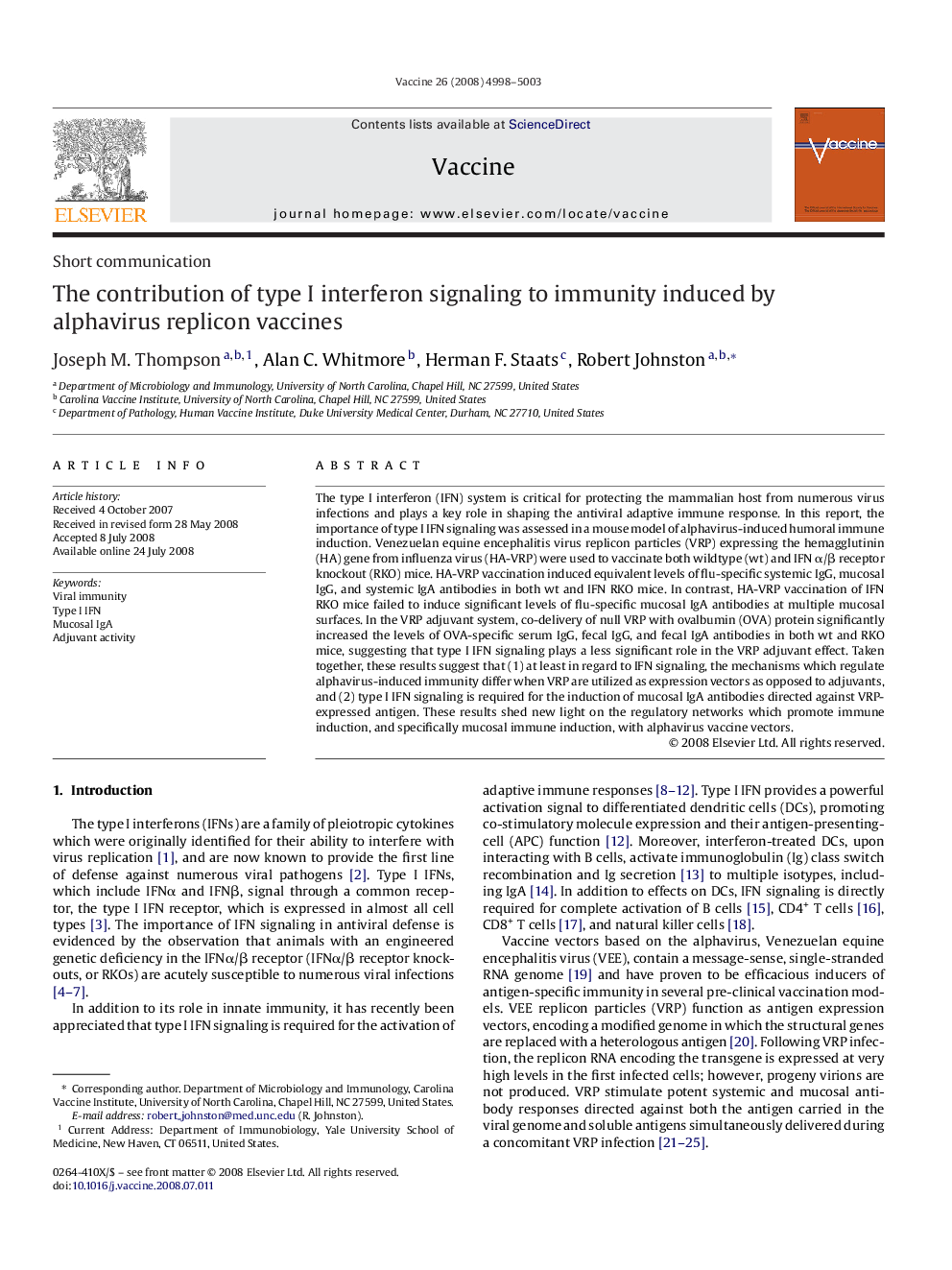| Article ID | Journal | Published Year | Pages | File Type |
|---|---|---|---|---|
| 2406244 | Vaccine | 2008 | 6 Pages |
The type I interferon (IFN) system is critical for protecting the mammalian host from numerous virus infections and plays a key role in shaping the antiviral adaptive immune response. In this report, the importance of type I IFN signaling was assessed in a mouse model of alphavirus-induced humoral immune induction. Venezuelan equine encephalitis virus replicon particles (VRP) expressing the hemagglutinin (HA) gene from influenza virus (HA-VRP) were used to vaccinate both wildtype (wt) and IFN α/β receptor knockout (RKO) mice. HA-VRP vaccination induced equivalent levels of flu-specific systemic IgG, mucosal IgG, and systemic IgA antibodies in both wt and IFN RKO mice. In contrast, HA-VRP vaccination of IFN RKO mice failed to induce significant levels of flu-specific mucosal IgA antibodies at multiple mucosal surfaces. In the VRP adjuvant system, co-delivery of null VRP with ovalbumin (OVA) protein significantly increased the levels of OVA-specific serum IgG, fecal IgG, and fecal IgA antibodies in both wt and RKO mice, suggesting that type I IFN signaling plays a less significant role in the VRP adjuvant effect. Taken together, these results suggest that (1) at least in regard to IFN signaling, the mechanisms which regulate alphavirus-induced immunity differ when VRP are utilized as expression vectors as opposed to adjuvants, and (2) type I IFN signaling is required for the induction of mucosal IgA antibodies directed against VRP-expressed antigen. These results shed new light on the regulatory networks which promote immune induction, and specifically mucosal immune induction, with alphavirus vaccine vectors.
